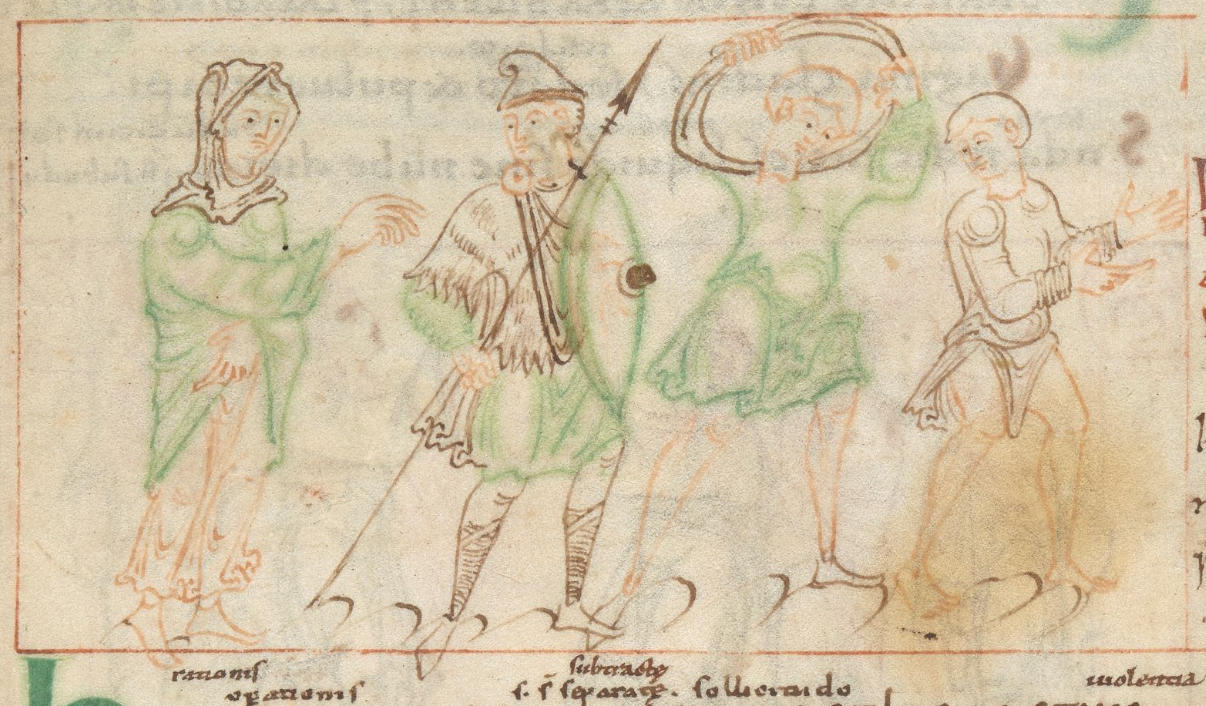Find the perfect fit with Amazon Prime. Try Before You Buy.

Join Amazon Prime - Watch Thousands of Movies & TV Shows Anytime - Start Free Trial Now
Prudentius' Psychomachia
'Conflict Of The Soul'
British Library, MS Cotton Cleopatra C VIII, c.1000
Peace, Fear, Labour and Vigour
folio 30 recto, upper register

PAX VENIT ET FUGIUNT METUS . ET LABOR . ET VIS
(Peace arrives - Fear, Labour and Vigour Flee.)
Source: f.30r British Library, MS Cotton Cleopatra C VIII
Prudentius (born in 348 in northern Spain, died after 405) spent most of his life following worldly pursuits, but later turned to writing, in which he aimed to glorify God and atone for his earlier sins.
One of his most popular works is a poem called Psychomachia (Conflict of the Soul), which describes the battles between female personifications of human virtues and vices.
Instead of being a dry theological treatise, the poem has the qualities of an exciting narrative filled with high drama, with lots of bloodshed and violence.
The descriptions of the women, including their clothes, armour, and details of their conflicts, lend themselves to illustration.
This copy was apparently written by a scribe of Christ Church, Canterbury.
Referenced in WAR - 005 - M.Harrison, G.Embleton - Anglo-Saxon Thegn AD 449-1066
The puzzle of the short mail shirt, part two. The four figures here represent (from left to right) Emotion, Fear, Labour and Vigour.
'Fear' is a warrior equipped with spear, shield and some form of body armour.
This 'armour', which has been interpreted as a short mail shirt, may however be a ragged jerkin of wild animal skin such as bear or wolf, stressing the aspect of ferocity.
Note also the leg-bindings (winingas), Phrygian cap, rumpled sleeves and cape held near the neck - all features characteristic of 10-11th-century dress.
(British Library, Ms. Cotton Cleopatra C VIII)
Part 1
Previous: Prudentius' Psychomachia 27v, Good-Works fights Avarice
Back to Prudentius' Psychomachia, 'Conflict Of The Soul', c.1000, British Library, MS Cotton Cleopatra C VIII

